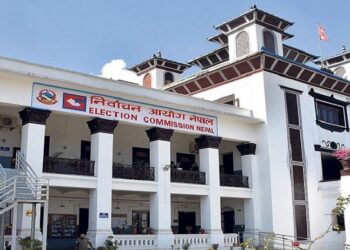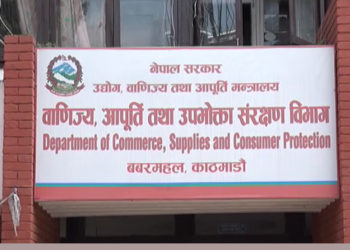The probe by the Parliamentary Public Accounts Committee (PAC) sub-committee into the wide-body aircraft purchase of Nepal Airlines has once again sparked the issue of corruption in Nepalese politics and development arena.
Economic development is not a function of a single variable. Yet, irrespective of political systems, corruption has always been the major detrimental factor in the country’s development. Despite several efforts made by the government, civil societies, and development partners, corruption level in the country is incessantly on a rise. It is evident from the fact that Nepal slid down to the 122nd position in 2017 from 116th position in 2013 in the perceived level of corruption ranking published by the Transparency International.
A handful of anti-corruption activists present two remedies in curbing corruption: increasing the salary so that an employee (public or private) has no compulsion to resort to corruption; and enforcing stringent legal measures it.
When we talk about corruption in Nepal, we only express our anxiety over it but do not discuss about its causes and remedial measures. A handful of anti-corruption activists present two remedies in curbing corruption: increasing the salary so that an employee (public or private) has no compulsion to resort to corruption; and enforcing stringent legal measures it. However, experiences from around the world show that a higher salary or strong rules and regulations are not sufficient factors for curbing corruption. The case from Ghana is worth mentioning here. The salary of Ghanaian police doubled in July 1, 2010. However, this only led to more extortion from truck drivers by the police.
A handful of anti-corruption activists present two remedies in curbing corruption: increasing the salary so that an employee (public or private) has no compulsion to resort to corruption; and enforcing stringent legal measures it.
Corruption in Nepal has become a social culture. Although people in general agree that corruption is ruining the country, corrupt people are never despised. Society praises lavish life of others irrespective of their income source. Those indulged in pomp of property become celebrity figure in the society such that people forget to question the source of their income.
This type of social culture has put the Nepalese society in the state of, prisoner’s dilemma, a popular term in economics. In prisoner’s dilemma situation, rational individuals do not cooperate with each other even if it is in their best interest. On the issue of corruption too, everyone is aware that “no corruption” will lead the country towards prosperity. However, they have an impression that their individual effort towards curbing corruption is meaningless. People think that rather being an idealist one should seize the opportunity of money making through every means.
Experience says that strong rules and regulation and creating anti-corruption institutions are not enough. Experience of Nordic countries show that honesty and social cohesion are fundamental in controlling corruption.
A million-dollar question is how to control corruption in Nepal in the given scenario. Experience says that strong rules and regulation and creating anti-corruption institutions are not enough. Experience of Nordic countries show that honesty and social cohesion are fundamental in controlling corruption. Unfortunately, we cannot expect high level of honesty and social cohesion in the current Nepalese society.
Another option is the extensive use of information and communication technology (ICT). Using information and communication technology for controlling corruption follows the “Panoptic Vision” paradigm. According to this paradigm, management techniques of rules and enforcement are keys to controlling corruption. ICT allows creating a Panopticon of an economy that can be observed and controlled by the concerned authority being invisible. It is not possible to explain all the details of how ICT works in this short write up, but the following hypothetical example gives an idea.
A million-dollar question is how to control corruption in Nepal in the given scenario. Experience says that strong rules and regulation and creating anti-corruption institutions are not enough. Experience of Nordic countries show that honesty and social cohesion are fundamental in controlling corruption. Unfortunately, we cannot expect high level of honesty and social cohesion in the current Nepalese society.
The ‘massive irregularity’ involved in bus tickets during the Dashain festival in Nepal has been an issue of concern every year. Everyone wants to visit their home during this festival. High demand for and a limited supply of bus gives rise to black market of tickets. If the selling of bus tickets through an online system is made mandatory, the problem can be solved easily.
Since several attempts to curb corruption have failed, the country now needs to rely on ICT. This not only helps to reduce corruption and enhance transparency but also increases efficiency and productivity. Moreover, it is economical. Several implementation authorities complain that ICT is very costly for a country like Nepal. But the benefit of it is by far larger than the cost. Blaming for the cost factor alone is simply an unwillingness to reduce and control corruption.
The views expressed in this article are the author’s own and do not necessarily reflect Khabarhub’s editorial stance.









Comment